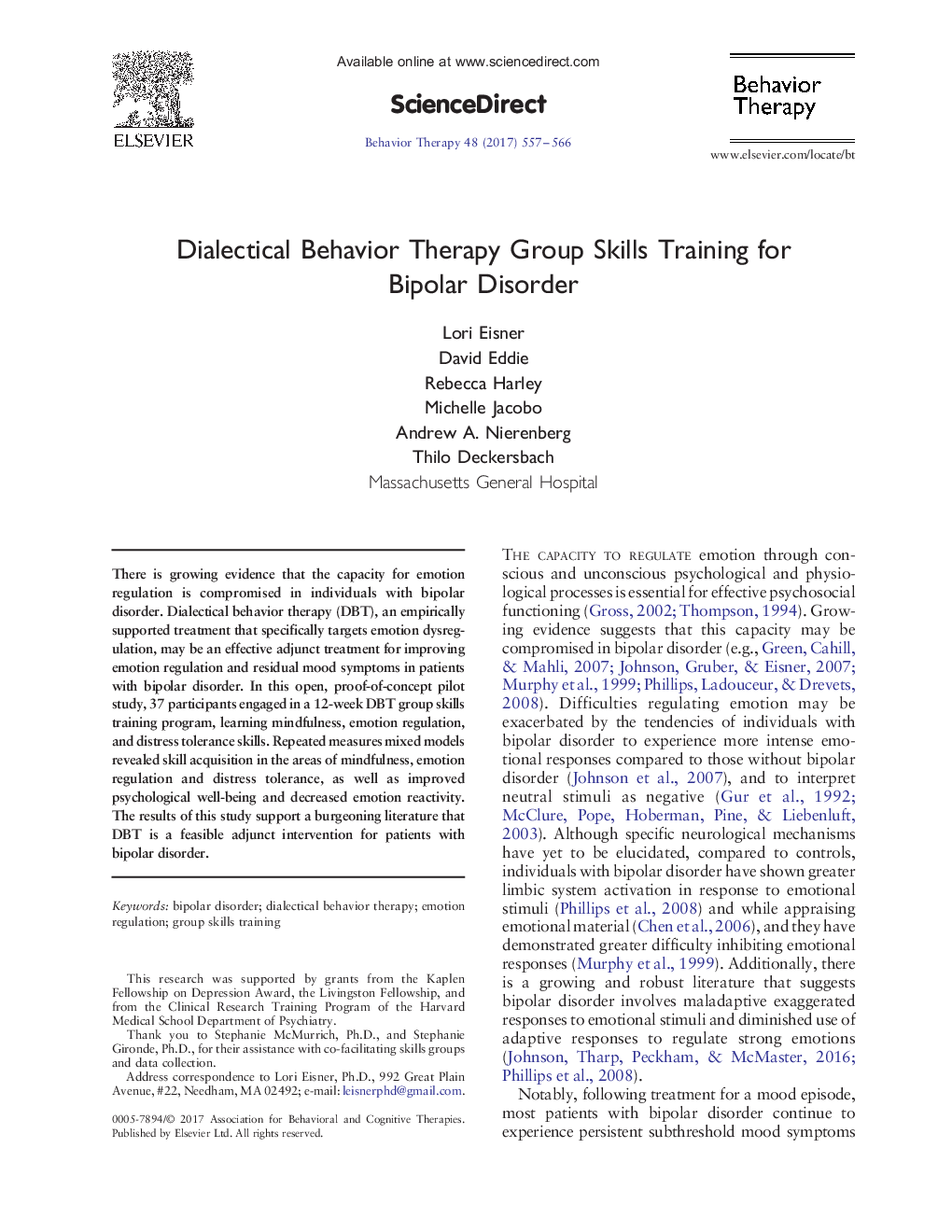| Article ID | Journal | Published Year | Pages | File Type |
|---|---|---|---|---|
| 5038070 | Behavior Therapy | 2017 | 10 Pages |
â¢Dialectical behavior therapy (DBT) was adapted for bipolar disorder treatment.â¢Participants acquired mindfulness, emotion regulation and distress tolerance skills and were satisfied with the treatment.â¢DBT was associated with improvements in well-being.
There is growing evidence that the capacity for emotion regulation is compromised in individuals with bipolar disorder. Dialectical behavior therapy (DBT), an empirically supported treatment that specifically targets emotion dysregulation, may be an effective adjunct treatment for improving emotion regulation and residual mood symptoms in patients with bipolar disorder. In this open, proof-of-concept pilot study, 37 participants engaged in a 12-week DBT group skills training program, learning mindfulness, emotion regulation, and distress tolerance skills. Repeated measures mixed models revealed skill acquisition in the areas of mindfulness, emotion regulation and distress tolerance, as well as improved psychological well-being and decreased emotion reactivity. The results of this study support a burgeoning literature that DBT is a feasible adjunct intervention for patients with bipolar disorder.
